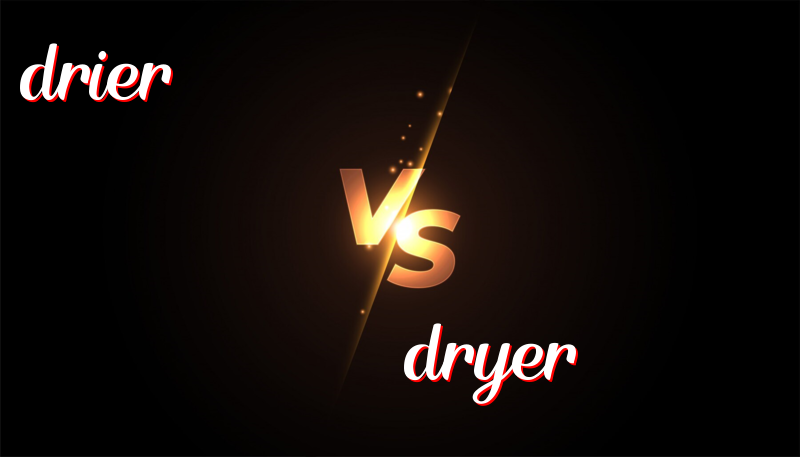Differentiating Between Drier and Dryer: Usage and Examples Explained
Drier vs. Dryer: Understanding the Difference
Word History
The words “drier” and “dryer” have similar sounds but different meanings. They both come from the same root word, “dry.” Over time, they have taken on different roles in English.
How to Use Them
Drier
“Drier” is the comparative form of the adjective “dry.” It means “more dry.” We use it when comparing two things. For example, when one towel is “drier” than another towel.
Dryer
“Dryer” is a noun. It is a machine or device that dries things. For example, a “clothes dryer” is used to dry clothes after washing.
Trick to Remember the Difference
Remember, “drier” with an “i” is like “i” in “comparison.” We use it to compare things that are more dry. “Dryer” with a “y” is like “you” using a machine. It’s a thing that dries.
Example Sentences
Drier
- Today is drier than yesterday.
- The air is drier in winter.
- This towel is drier than that one.
- My skin feels drier in cold weather.
- The desert is much drier than the forest.
Dryer
- We put our clothes in the dryer.
- The hair dryer is in the bathroom.
- Use the dryer to dry these towels.
- The dryer is broken, so we can’t use it.
- Turn on the dryer to dry your clothes faster.
Summary
In summary, “drier” is used to compare things that are more dry. “Dryer” is a noun for a machine that dries. To choose the right word, think about whether you are comparing or talking about a machine.

Leave a Reply
You must be logged in to post a comment.